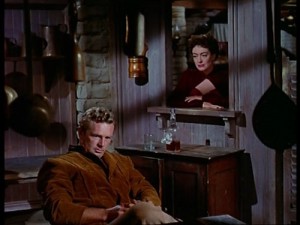I wasn’t ready for Susan Sontag’s non-fiction film about the 1973 Yom Kippur War in 1974, and I’m not at all sure that I’m ready for it even now, on the DVD released by Zeitgeist and Kim Stim. But there’s no question that part of my perspective on it has changed. For one thing, this film obviously needs to be cross-referenced with her book of thirty years later, Regarding the Pain of Others. Furthermore, in 1974, when I attended Susan’s private screening of Promised Lands in Paris, I was probably expecting to hear her words and her voice, her writerly badges, and I was surprised that I got neither: the voices and words are mainly those of three unnamed individuals — Yoram Kaniuk (for me the most sympathetic commentator), Yuval Ne’emangood, and a psychiatrist at the end who claims to be offering therapy to a shellshocked Israeli soldier under a drug-induced trance when he contrives to recreate the soldier’s wartime trauma, complete with brutal sound effects. (After the screening, Sontag described the latter aptly and with considerable horror as “Docteur Folamour” — the French name for Dr. Strangelove — and I strongly suspect that it was this sequence that led to the film originally being banned in Israel.) Read more
Written for the Olive Films Blu-Ray, which came out in 2016. — J.R.

François Truffaut called it the Beauty and the Beast of Westerns, without saying who was the beauty and who was the beast. (One could find many candidates for either role). And Jean-Luc Godard, in his second feature, Le Petit Soldat, offered a spin on the movie’s most celebrated dialogue exchange, before offering explicit references to Johnny Guitar in several other films he made in the 60s:
Johnny (Sterling Hayden): Tell me something nice.
Vienna (Joan Crawford): Sure. What would you like to hear?
Johnny: Lie to me, tell me that all these years you’ve waited, tell me.
Vienna: All these years I’ve waited.
Johnny: Tell me you’d have died if I hadn’t come back.
Vienna: I would have died if you hadn’t come back.
Johnny: Tell me you still love me like I love you.
Vienna: I still love you like you love me.
Johnny (softly and sarcastically, about to down another shot of whisky):
Thanks.
Bruno (Michel Subor): Lie to me . . . Say you aren’t sad that I’m leaving.
Véronica (Anna Karina): I’m not sad that you’re leaving. I’m not in love
with you. I won’t join you in Brazil. Read more
From Film Quarterly (Spring 2009). — J.R.


One way of looking back at the sense of male privilege underlying much of the French New Wave would be to consider Céline and Julie Go Boating (1974) as a belated commentary on it. I’ve long regarded that masterpiece as a late-blooming, final flowering of the New Wave, especially for its referentiality in relation to cinephilia and film criticism. For one thing, it glories in the kind of compulsive doubling of shots and characters that François Truffaut, Jean-Luc Godard, Claude Chabrol, Eric Rohmer, and Jacques Rivette himself all discovered in Alfred Hitchcock’s movies. But it also puts a kind of stopper on the New Wave in the way it both underlines and responds to that movement’s sexism through the services of its four lead actresses, all of whom collaborated on its script: Juliet Berto, Dominique Labourier, Bulle Ogier, and Marie-France Pisier. Every male character, both in the story proper and in the film-with-in-the-film, is viewed as absurd, both as a romantic fop and as a narcissist who ultimately elicits the heroines’ scorn and ridicule: the patriarch (Barbet Schroeder) in the Phantom Ladies over Paris segments, playing his two phantom ladies (Ogier and Pisier) off against one another; and, in the story proper, Julie’s small-town suitor (Philippe Clévenot), Céline’s boss (Jean Douchet), and various male customers at the cabaret. Read more



